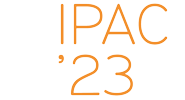Speaker
Description
The ‘Laser-hybrid Accelerator for Radiobiological Applications’, LhARA*, facility is conceived to study the biological response to ionising radiation, specifically focussing upon the co-called ‘FLASH’ (>40 Gy/min) regime. A high repetition laser, directed at a thin target, will generate high intensity, ultra-short, particle bunches, at up to 15 MeV/u (and subsequent acceleration up to 127 MeV/u, as required). These particles will be guided to one of several end-stations, whereby the effects can be studied via in-vitro or in-vivo experiments using newly developed detectors, existing phantoms, and test samples.
The laser driven ion source and capture systems are key technologies for LhARA. We will discuss ongoing R&D into delivery of a laser driven ion source with the required beam parameters, stability and repetition rate. Following the idea originally outlined by Gabor**, the current plan and status of using large volume, high-density, low-temperature, non-neutral plasmas as beam optics within the capture system will also be presented.
Footnotes
- Aymar et al.. LhARA: The Laser-hybrid Accelerator for Radiobiological Applications. Front. Phys. 8 (2020) 567738
** Gabor. A Space-Charge Lens for the Focusing of Ion beams. Nature 160 (1947) 89
Funding Agency
UK Research and Innovation (UKRI) Science and Technology Facilities Council (STFC) Ion Therapy Research Facility (ITRF)
| I have read and accept the Privacy Policy Statement | Yes |
|---|
